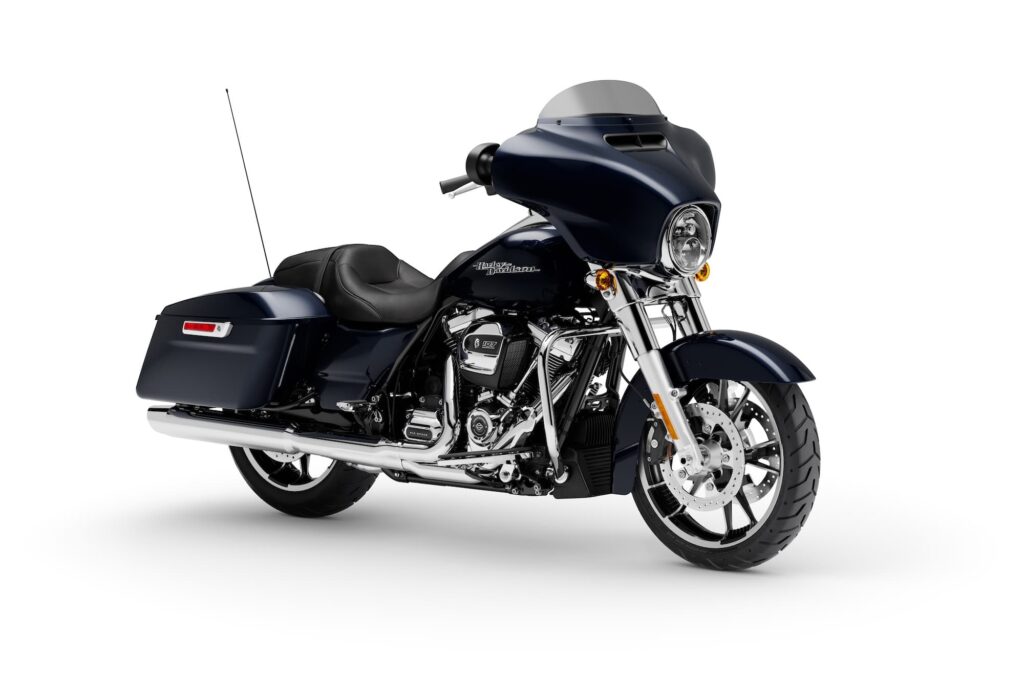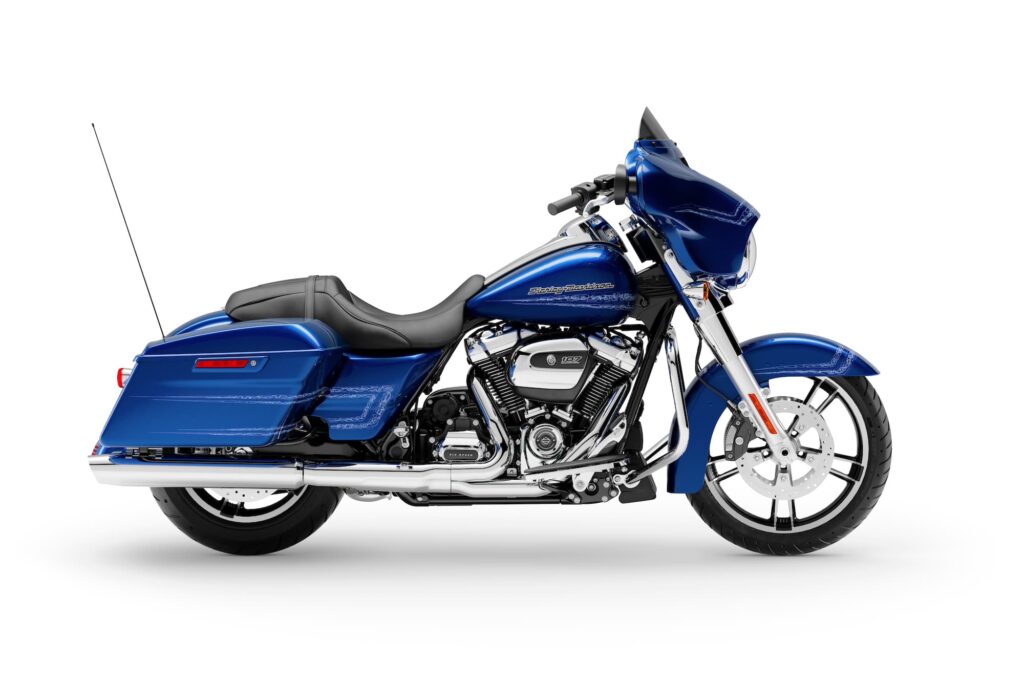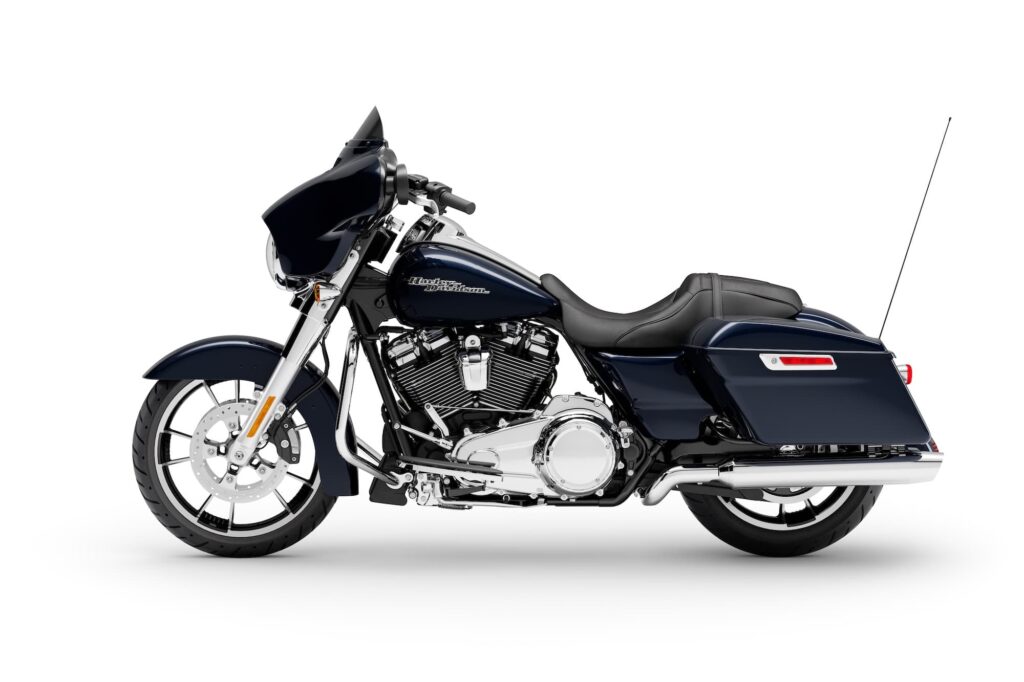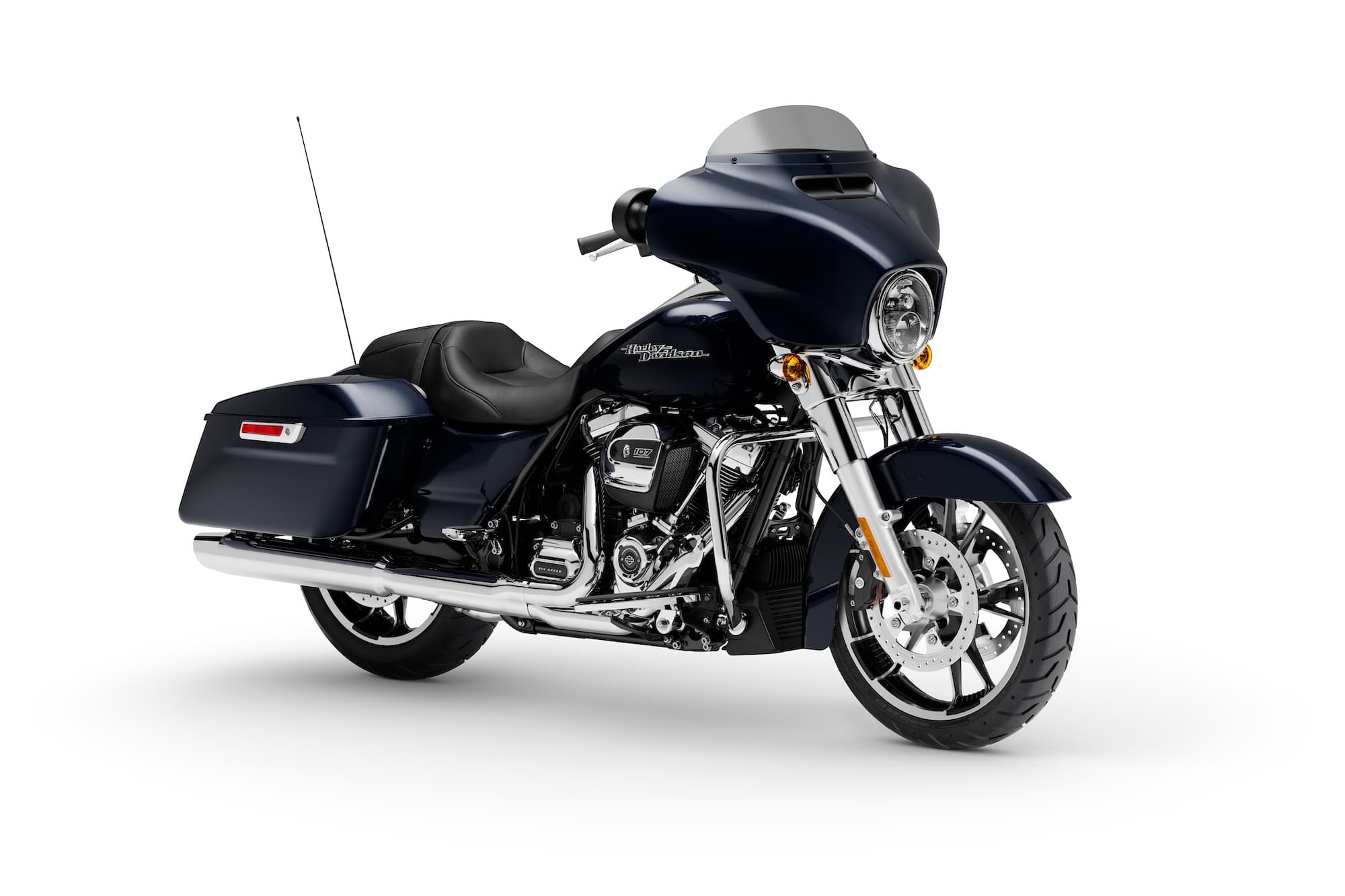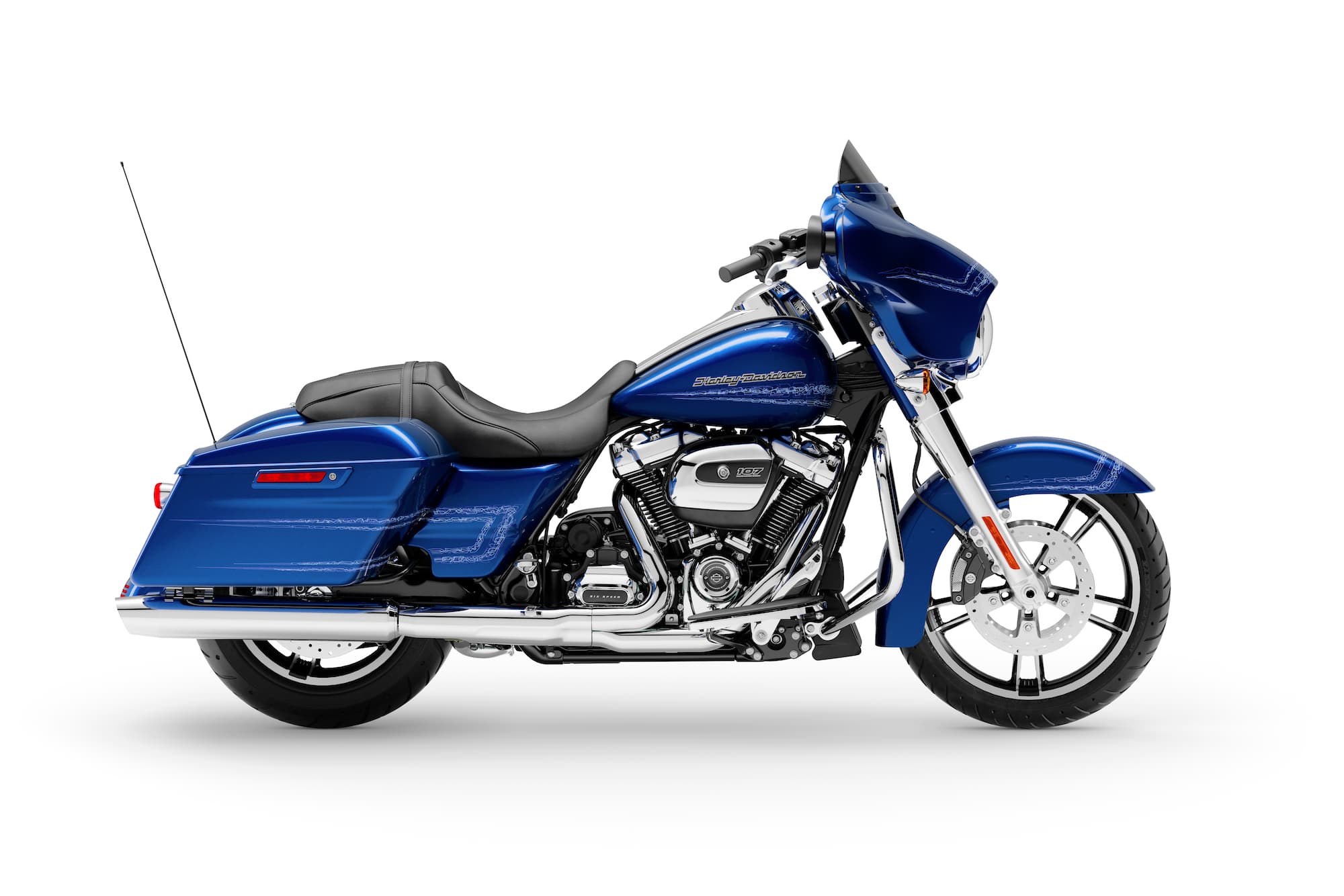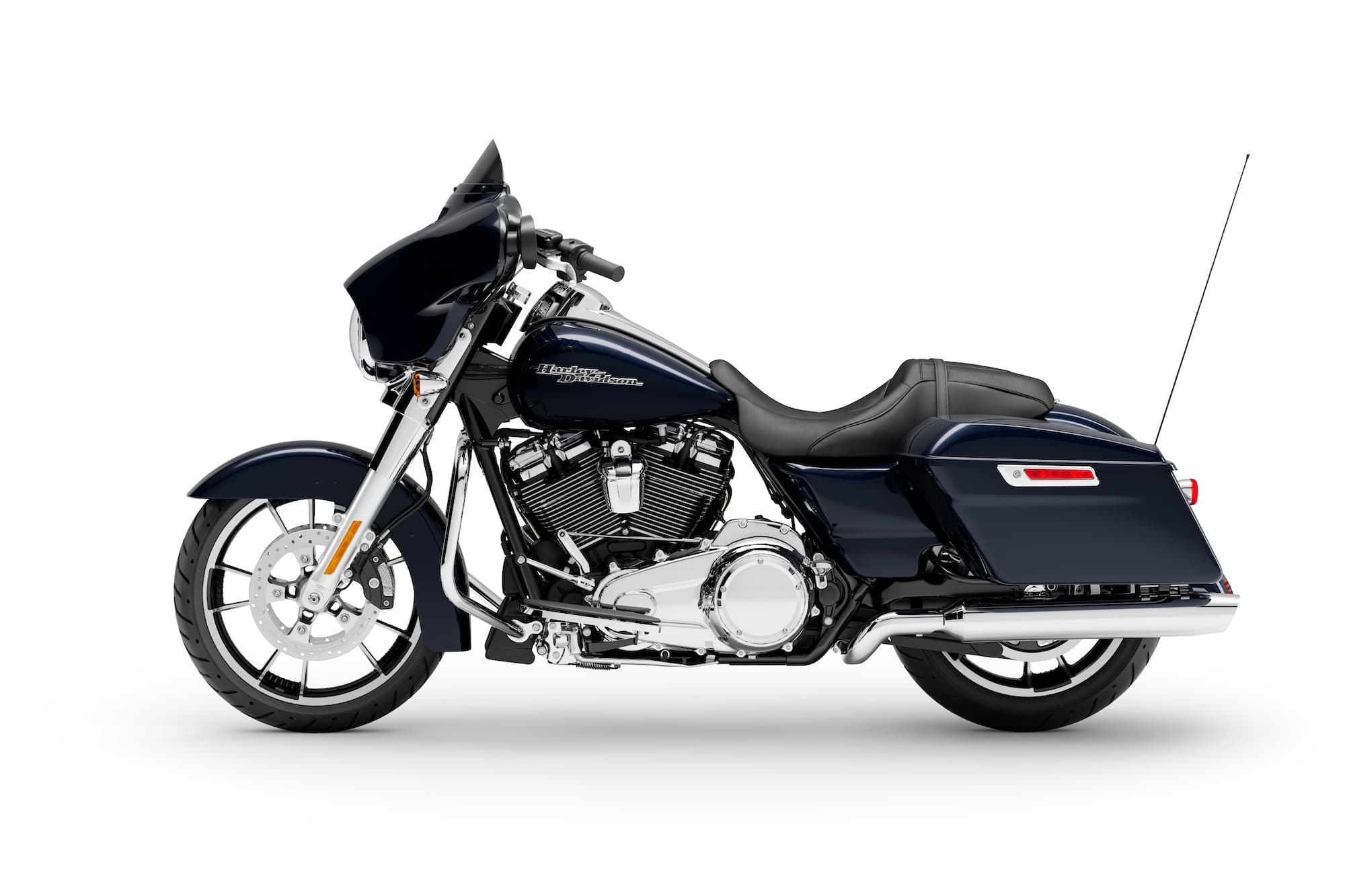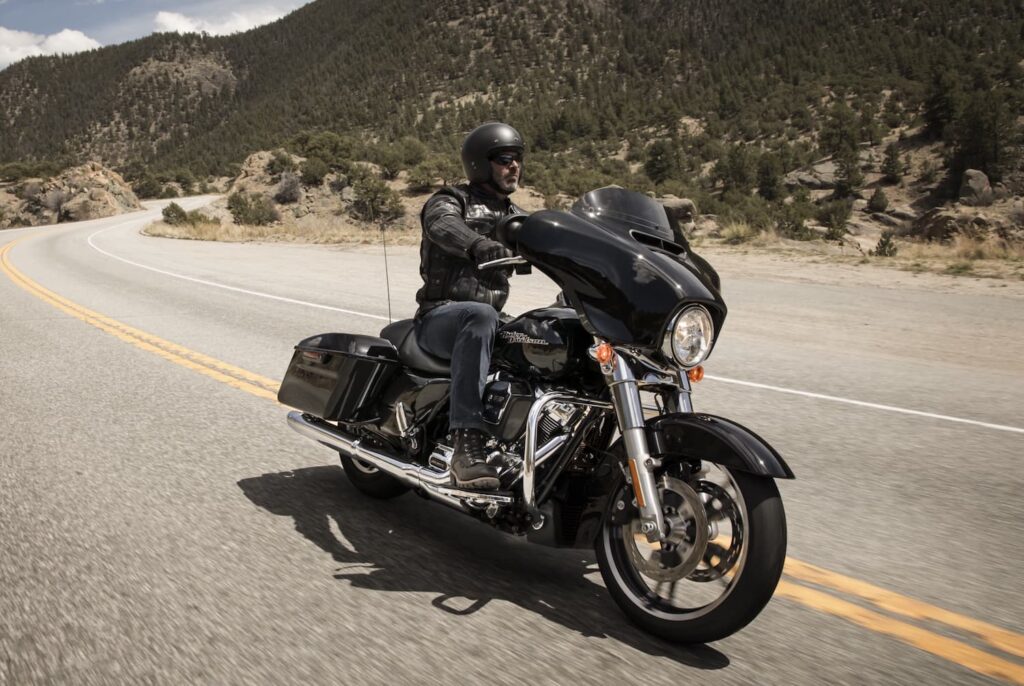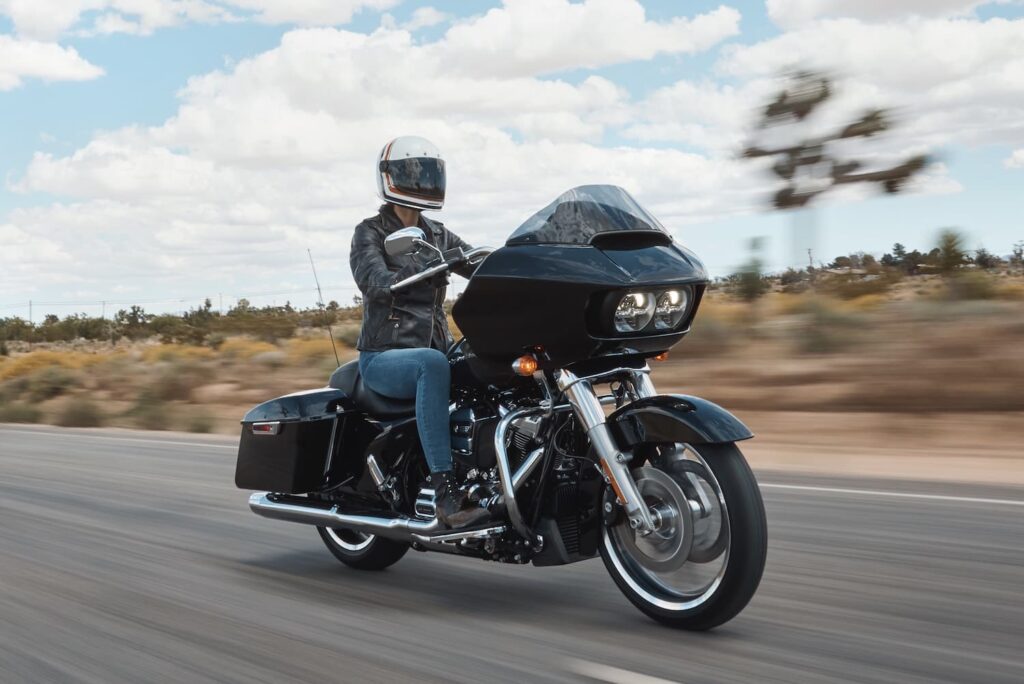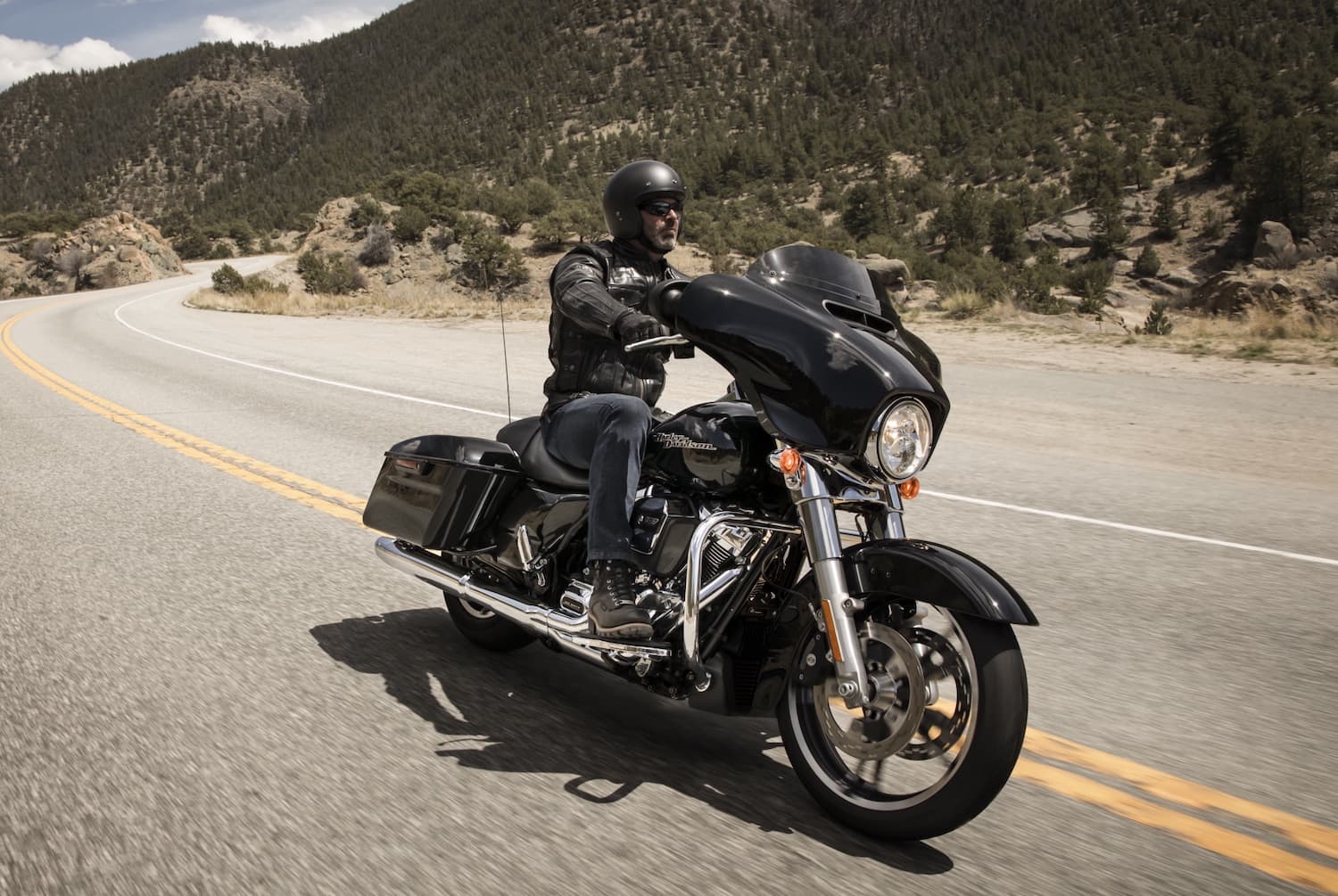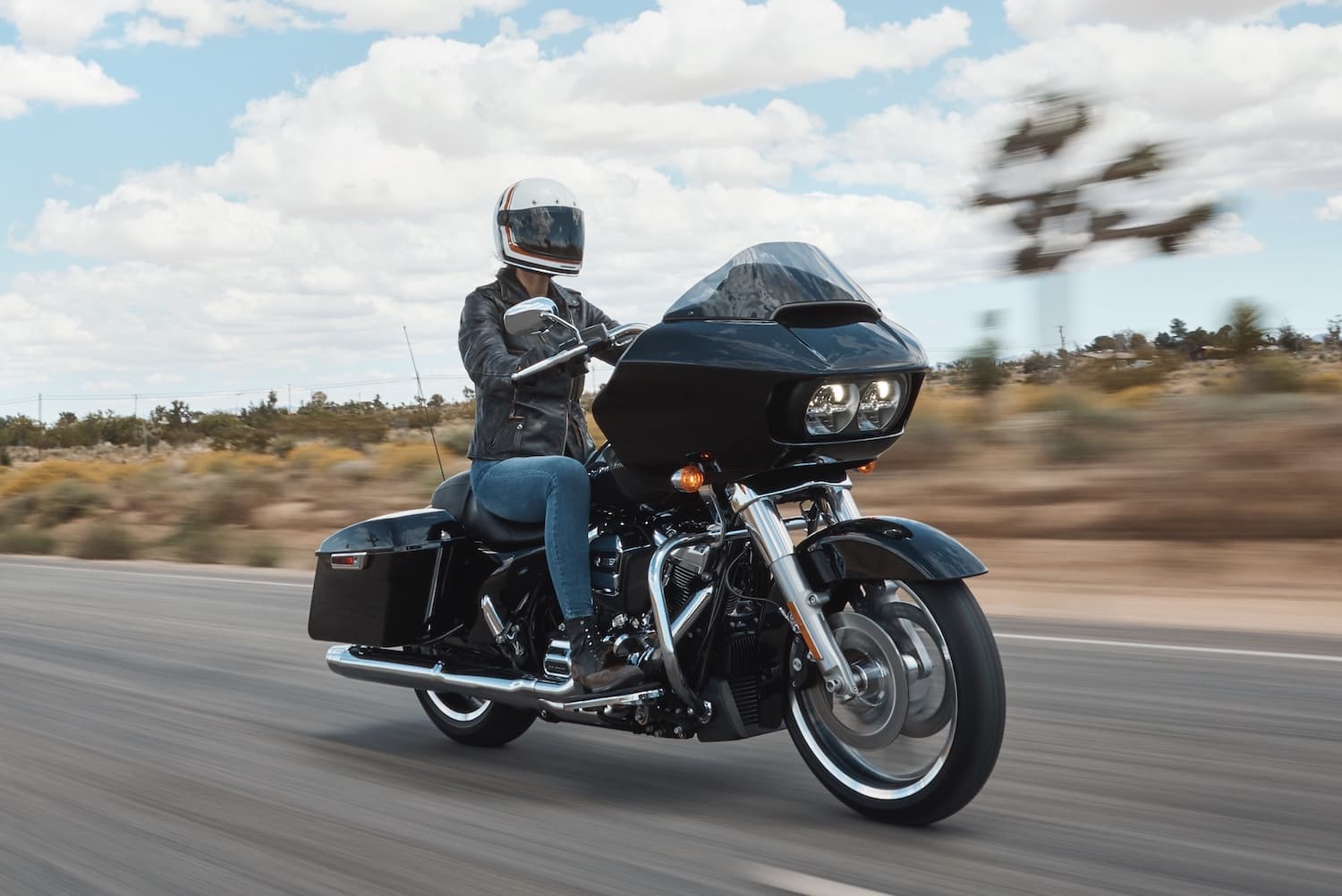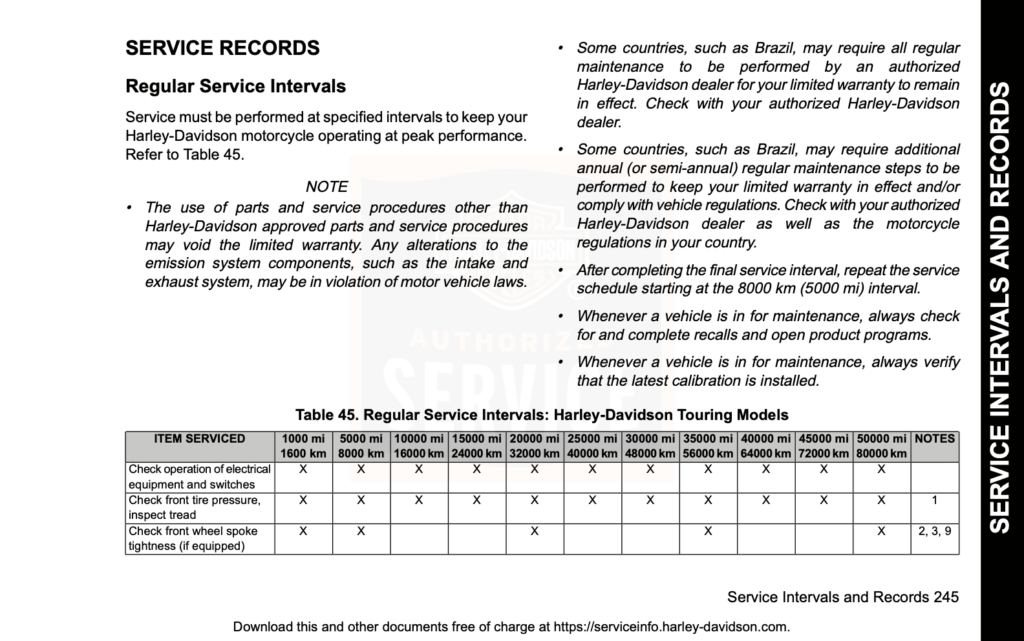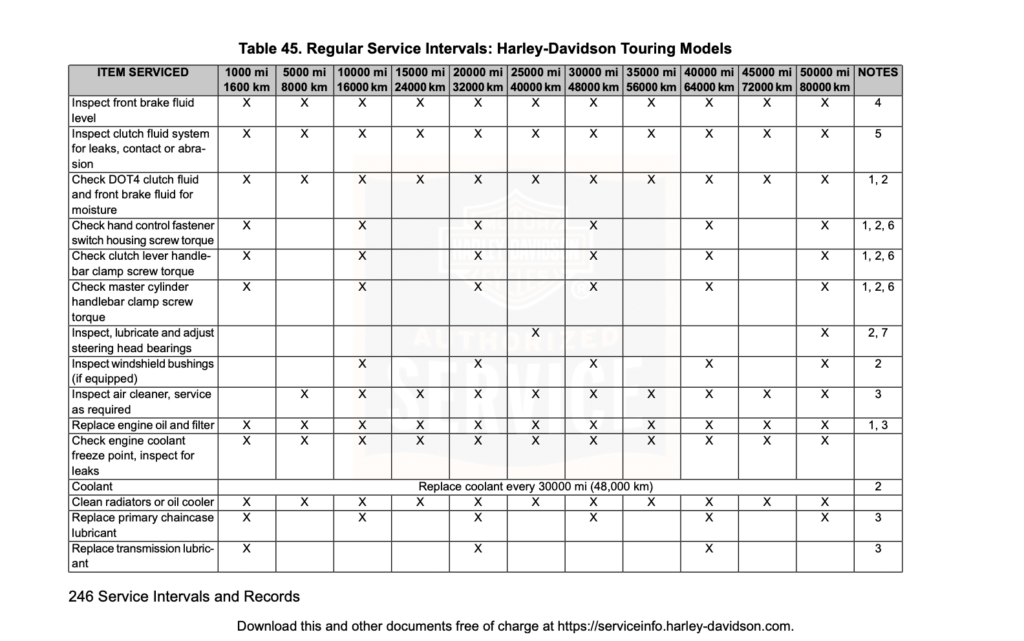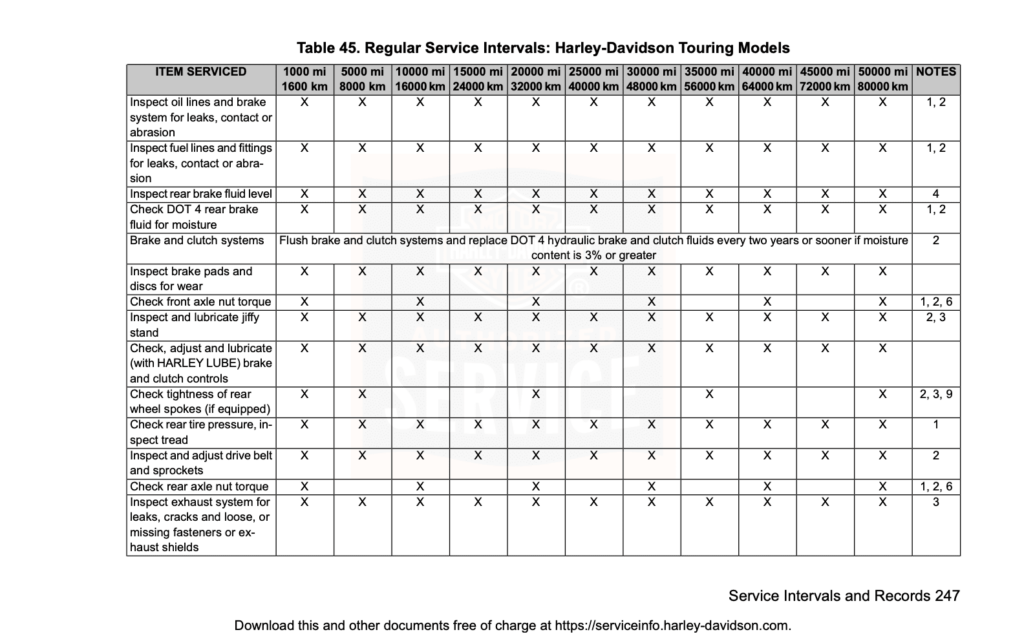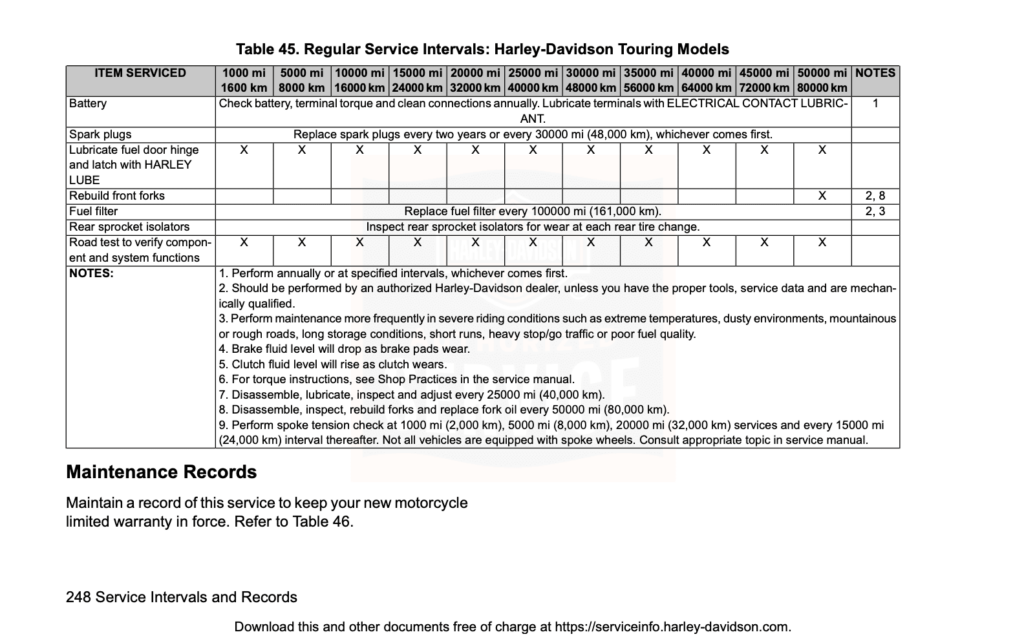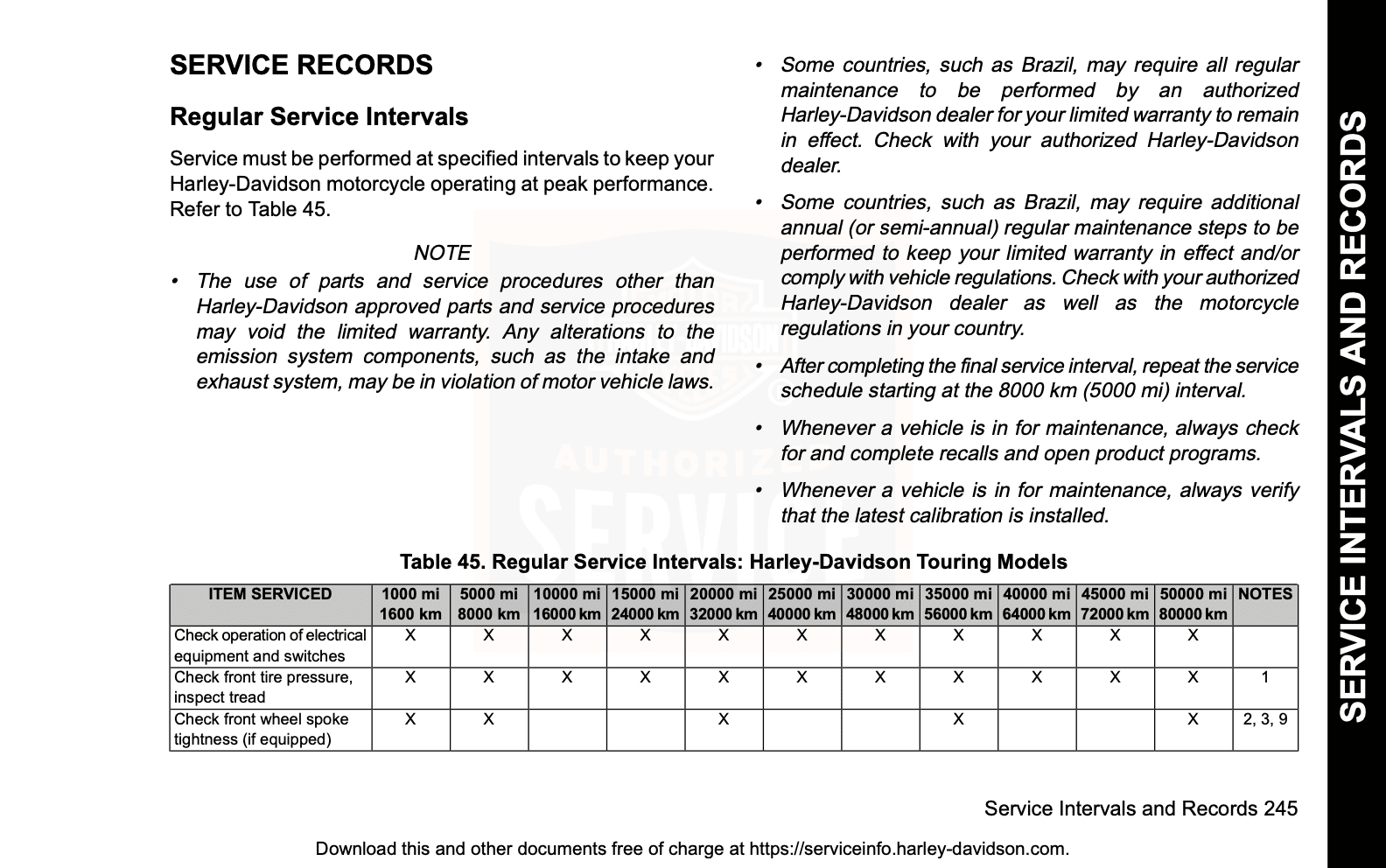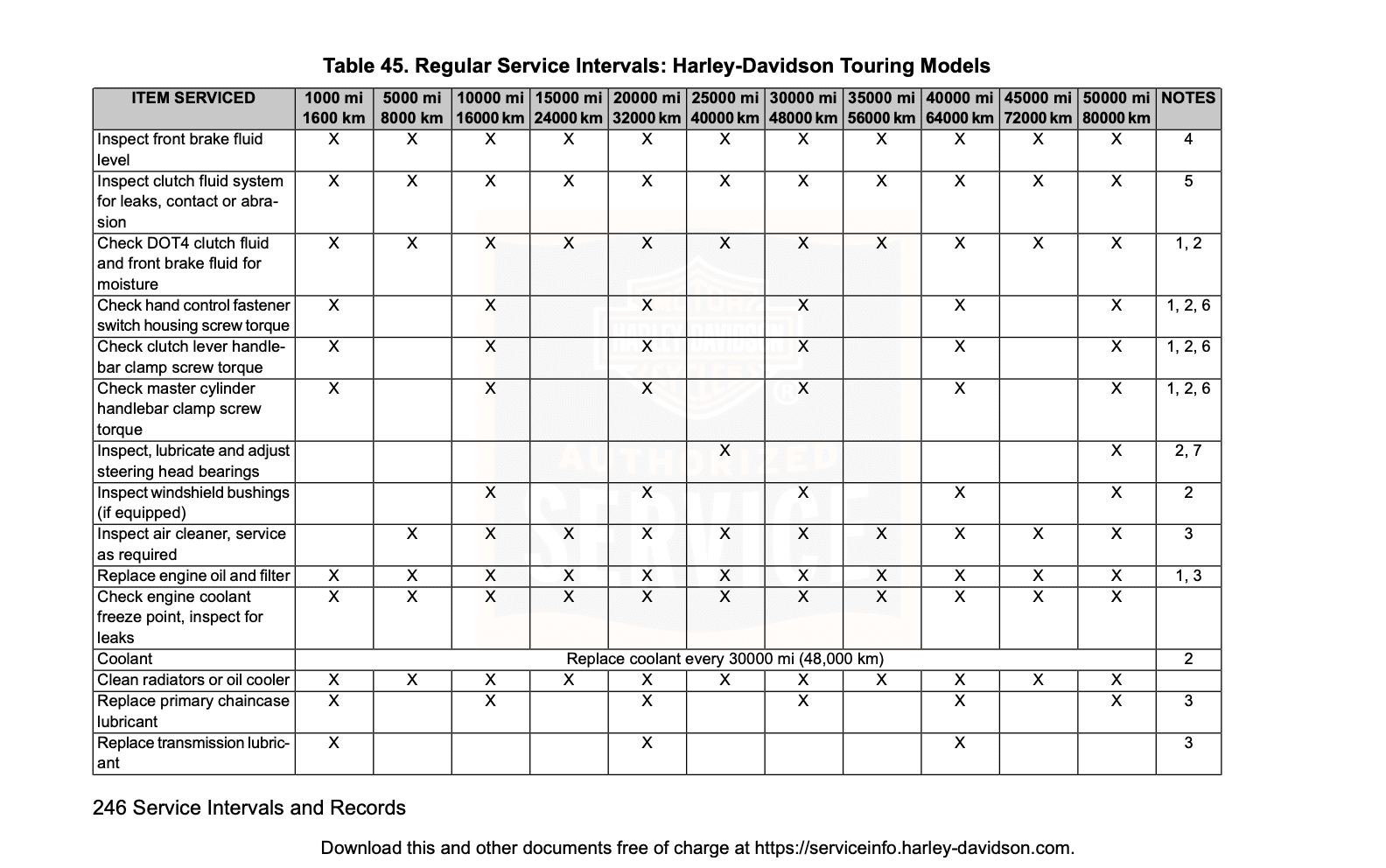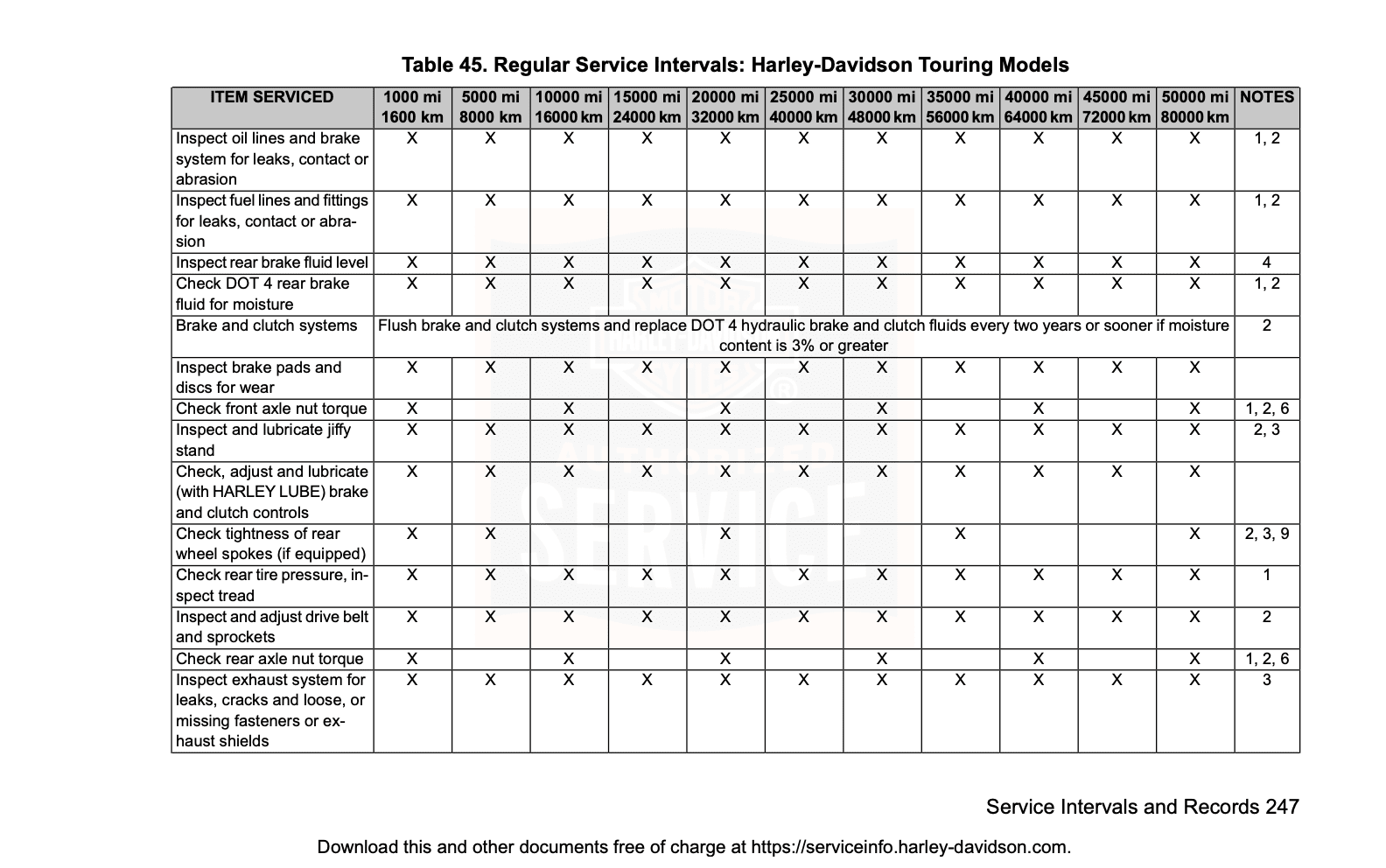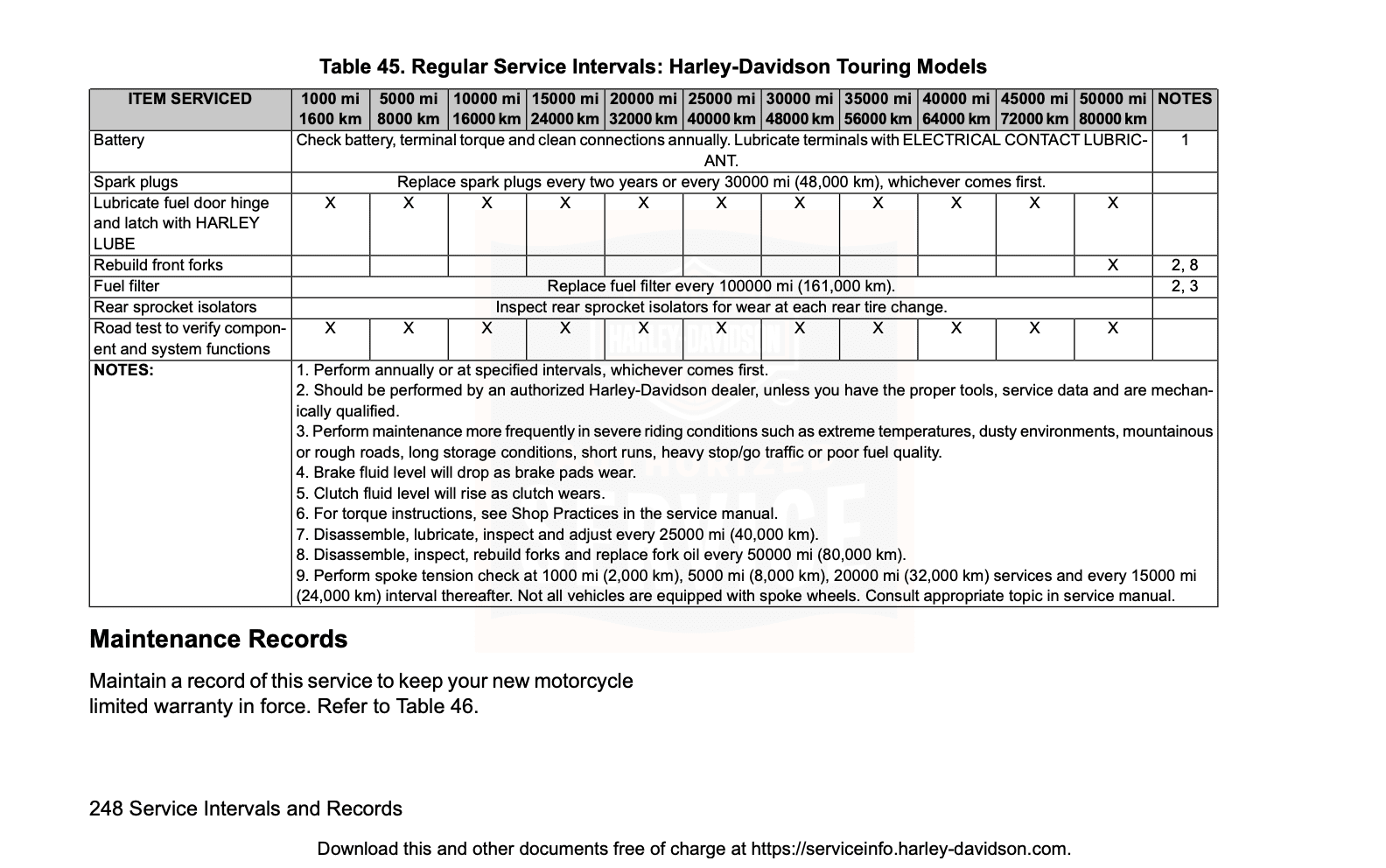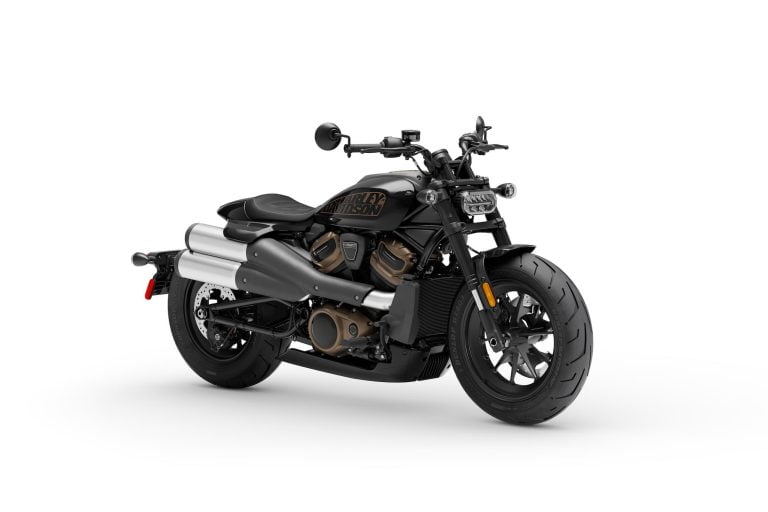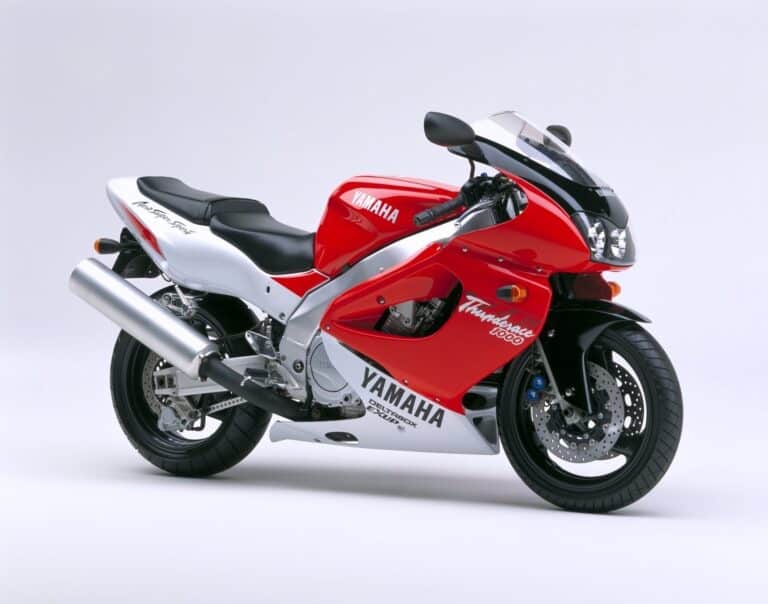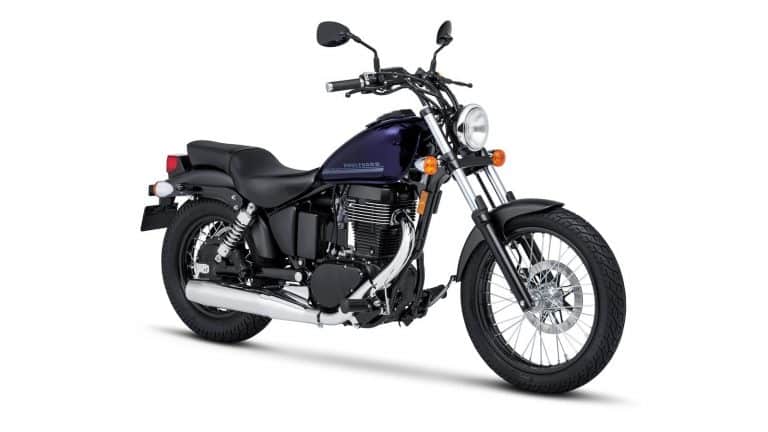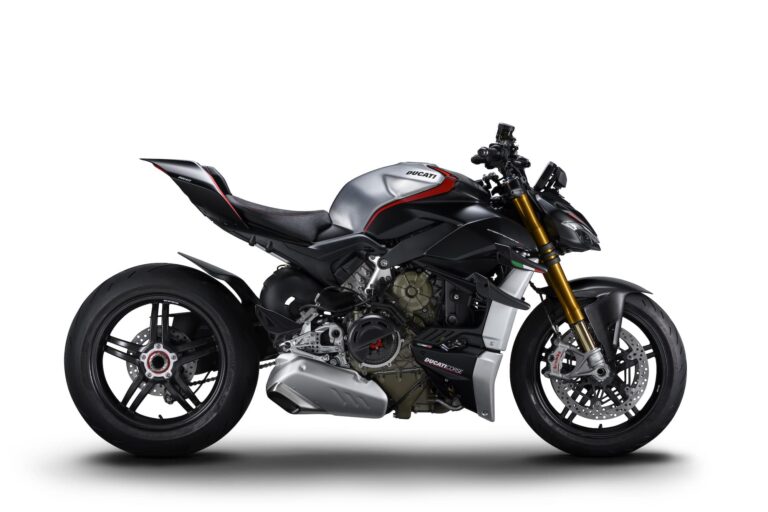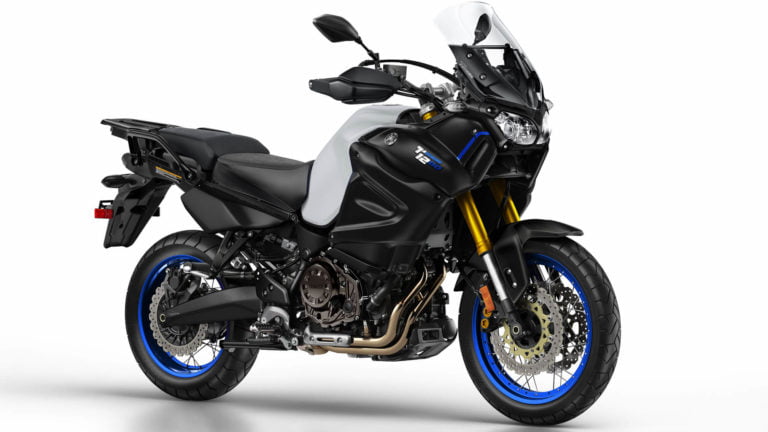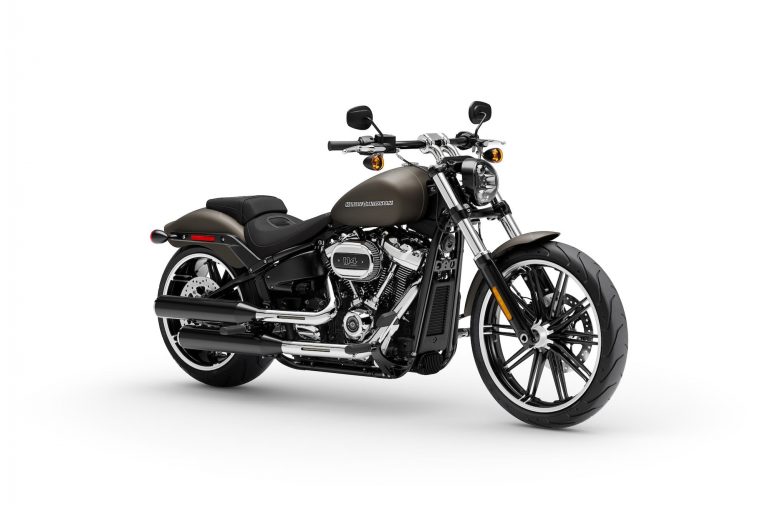Harley-Davidson FLHX Street Glide (2017+, M8) Maintenance Guide
This is the maintenance schedule and guide for the 2017+ Harley-Davidson Street Glide, model name FLHX, with the new-for-2017 Milwaukee-Eight 107 motor.
The Street Glide is a classic touring bike, blending the chrome-heavy style of a cruiser with the creature comforts of a long range tourer, including floorboards, luggage, and in this modern incarnation, an infotainment system.
The FLHX Street Glide is powered by the Milwaukee-Eight 107 motor, an air/oil-cooled pushrod-operated OHV motor with hydraulic, self-adjusting lifters (no valve service!), and four valves per cylinder. With its 10.0:1 compression ratio, the FLHX makes peak torque of 111.4 lb-ft (151 Nm) at 3250 rpm – loads of torque, all down low. (The exact spec varies slightly by market.)
The power train is Harley-Davidson’s six-speed “Cruise Drive” transmission and a belt final drive.
This site has links from which we earn a commission (which unfortunately nobody can save, not even us). If you appreciate this research work, then please use those links. Thanks.
Harley-Davidson FLHX Street Glide Service Intervals
Like most Harley-Davidson motorcycles, the Harley-Davidson FLHX Street Glide has 5000 mile / 8000 km or annual service intervals.
At every service, you need to change the engine oil and filter, and do a once-over of the motorcycle for items needing lubrication, adjustment, or cleaning. Also check wearable items (like brake hoses and tires) to see if they’re still in good condition.
For the M8 motor, you also need to periodically replace both primary chaincase lubricant and transmission lubricant.
As the FLHX has self-adjusting valves, there is no valve service interval. You should get your bike serviced, however, if you hear valve noise. However, Harley-Davidson does suggest you change the spark plugs every 30000 miles / 48000 km or two years.
A number of items need to be done less frequently, like changing the brake fluid. See the schedule for more details.
Harley-Davidson FLHX Street Glide (2017+) Maintenance Schedule
Below is the maintenance schedule for the FLHX Street Glide. The Street Glide’s maintenance schedule is that of the Milwaukee-Eight 107 motor without the twin cooling seen in the higher-end Touring models, like the Ultra.
The maintenance schedule as shown in the manual is broken up into the standard maintenance schedule of major items and the inspection checklist of regular service items.
Maintenance Schedule
Below is the maintenance schedule for the Harley-Davidson FLHX Street Glide for core items (oil changes and so on).
Notes:
- The Street Glide changed from a hydraulic clutch (2017-2020) to a cable clutch from 2021 onward. This is reflected in the schedule below.
- To make the maintenance schedule more legible, we’ve cropped it at 30000 miles / 48000 km. Keep repeating it in the pattern shown, with some items only done irregularly.
- Follow the earlier of time-based or distance-based service intervals. For example, change the oil every 5000 miles or year, whichever comes sooner.
| mi x 1000 | 1 | 5 | 10 | 15 | 20 | 25 | 30 | |
|---|---|---|---|---|---|---|---|---|
| km x 1000 | 1.6 | 8 | 16 | 24 | 32 | 40 | 48 | Every |
| Inspection checklist (see below) – Perform | ✓ | ✓ | ✓ | ✓ | ✓ | ✓ | ✓ | Year (some items only) |
| Engine oil – Replace | ✓ | ✓ | ✓ | ✓ | ✓ | ✓ | ✓ | Year See notes below |
| Oil filter – Replace | ✓ | ✓ | ✓ | ✓ | ✓ | ✓ | ✓ | Year |
| Air cleaner filter – Inspect Clean as necessary in lukewarm water with mild detergent | ✓ | ✓ | ✓ | ✓ | ✓ | ✓ | More often if riding in severe conditions. | |
| Spark plugs – Replace | ✓ | 2 years | ||||||
| (Spoked rims) Spoke tightness (front and rear) – Check | ✓ | ✓ | ✓ | More often if riding in severe conditions. | ||||
| Hand control switch housing screw torque – Tighten | ✓ | ✓ | ✓ | ✓ | Year | |||
| Front brake handlebar clamp screw torque – Tighten | ✓ | ✓ | ✓ | ✓ | Year | |||
| Steering head bearings – Lubricate | ✓ | |||||||
| Windshield bushings – Inspect | ✓ | ✓ | ✓ | |||||
| Primary chaincase lubricant – Replace | ✓ | ✓ | ✓ | ✓ | More often if riding in severe conditions. | |||
| Transmission lubricant – Replace | ✓ | ✓ | More often if riding in severe conditions. | |||||
| Brake systems – Replace (use DOT 4 fluid) | 2 years | |||||||
| (2017-2020 Hydraulic clutch models) Clutch fluid – Replace | 2 years | |||||||
| Front and rear axle nut torque – Tighten | ✓ | ✓ | ✓ | ✓ | Year | |||
| 12 battery – Check battery, terminal torque, and clean connections. Lubricate with electrical contact lubricant | Year | |||||||
| Fuel filter – Replace | 100000 mi (161000 km) |
Standard Inspection Checklist
Below is the standard inspection checklist for the Milwaukee-Eight Street Glide. Perform the items in this checklist according to the schedule above.
Not all items need to be checked annually — those that have annual service requirements are marked on the right.
| Standard Inspection Checklist — Milwaukee Eight | Annual |
|---|---|
| Drive belt and sprockets – Inspect | |
| Drive belt – Check / Adjust tension | |
| Rear sprocket isolators – Inspect at every tire change | |
| Electrical equipment and switches – Inspect | |
| Tire pressure and tread (front and rear) – Check | ✓ |
| Brake and clutch controls – Lubricate | |
| Brake pads (front and rear) – Wear check Minimum thickness: 0.4 mm / 0.016 in | |
| Brake fluid level (front and rear) – Inspect level (fluid drops as pads wear), and check moisture content. Replace if moisture over 3%. | |
| 2017-2020: Clutch fluid level – Inspect level and check moisture content. Replace if moisture over 3%. | ✓ |
| 2021+: Clutch cable – Adjust and check for leaks, contact, or abrasion. Lubricate cable with Harley-Davidson lubricant | |
| Oil cooler – Clean | |
| Oil and brake lines – Inspect | |
| Jiffy stand – Lubricate | |
| Exhaust system, fasteners, and shields – Inspect | |
| Fuel door hinge and latch – Lubricate | |
| Component and system function – Road test |
Wheel / Tire Size
As many Harley-Davidson cruisers do, the FLHX Street Glide ships with Dunlop bias blackwall tires, custom made for Harley-Davidson.
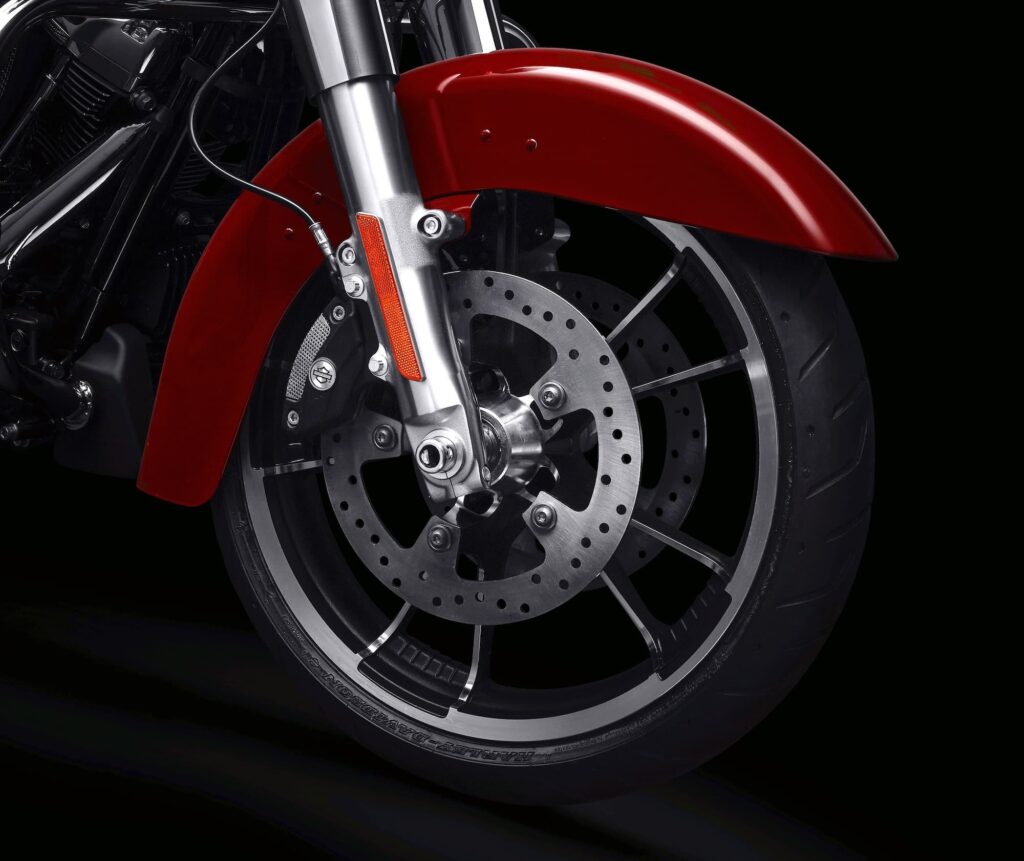
| Wheel | Wheel size | Tire size | Tire pressure (cold) |
|---|---|---|---|
| Front | 19 x 3.5 in | 130/60B19 61H | 36 psi / 248 kPa |
| Rear | 16 x 5 in | 180/65B16 81H | 40 psi / 276 kPa |
Oil Change on the FLHX Street Glide
There are three fluids that need to be changed on the Street Glide, as with most Harley-Davidsons.
For all of them, you can use Castrol V-Twin 20W50, a popular oil for Harley-Davidson big twins, or Mobil 1 V-twin 20W-50. You can also use Screamin’ Eagle Syn3 Synthetic 20W50, Harley-Davidson’s own in-house high-quality synthetic, which you can get from dealers.
These are the places oil needs to be changed:
- Engine oil
- Primary chaincase
- Transmission
While the standard oil change interval for the Street Glide is 5000 miles / 8000 km, Harley-Davidson recommends you change the oil every 1500 mi / 2400 km if you frequently ride the motorcycle short distances (less than 15 mi / 24 km) in ambient temperatures below 60 degrees F / 16 C.
For example, if you’re regularly riding in winter in most of the northern hemisphere or other cold climates, you’ll want to change the oil more often.
Belt Tension Check / Adjustment
To check the belt tension on your FLHX Street Glide, follow the procedure below.
You need a belt tension tool (either Harley-Davidson or aftermarket one, as most belt tension tools are similar) and a ruler to measure belt deflection
- Put your bike in neutral on its stand, with the rear wheel on the ground, and nothing in the saddlebags.
- Push up on the middle of the bottom half of the belt until the belt tension gauge registers 10 lb (4.5 kg) of force.
- Use the ruler to measure belt tension.
Target belt tension for the FLHX Street Glide: 1/4-7/16 in (6.4-11.1 mm)
Note that the belt tension spec for the FLHX Street Glide is different from that of the higher-end Street Glide ST.
If the belt tension is out of spec, you can either adjust it yourself if you’re familiar with how, or take it to a dealer.
About the Harley-Davidson Street Glide (FLHX)
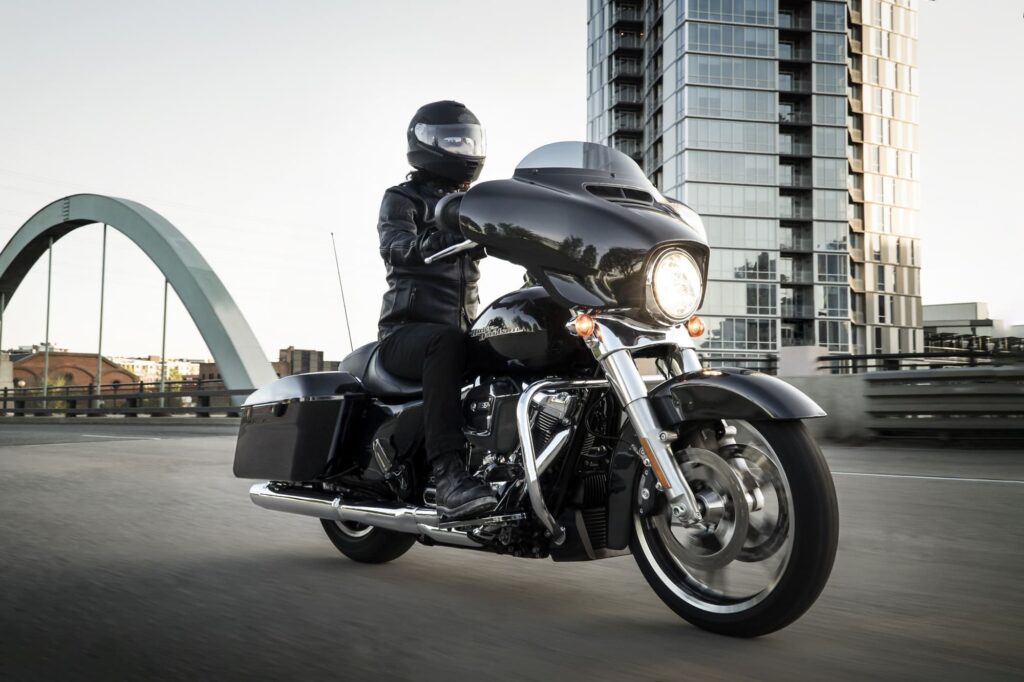
The Harley-Davidson Street Glide (FLHX) is one of H-D’s touring motorcycles. It has a batwing style fairing, single Daymaker headlight, floorboards, and saddlebags.
The core of the 2017+ Street Glide is the Milwaukee-Eight 107 c.i. engine, which Harley-Davidson rolled out to all its motorcycles from 2017, replacing the earlier Twin Cam.
With a compression ratio of 10.0:1, the M-8 107 makes 111.4 lb-ft of torque at 3250 rpm. And of course, that torque comes on very low and fizzles out by 4500 or so, but you’ll have shifted by then.
There’s a lot to like about the Street Glide. This is a highway cruiser, but it’s one that’s particularly stylish. The single round headlight is classic motorcycling style, and the fork-attached fairing gives the Glide a sporty feel, different from the frame-attached fairings of some of the other H-D tourers.
The Milwaukee-Eight 107 may be the baby engine in the line, but there’s no place where it feels short on power. It’s only when you step up to the 114 or 117 that you may realise that you’re missing out on a bit of bark and pull… but if not for the bigger motors, you’d never feel like the 107 comes up short.
The Street Glide is a nice-looking bike, but it doesn’t sacrifice much in terms of handling. Harley-Davidson used to have a reputation for making bikes that were a little difficult to handle – it was part of their “character”. That’s no longer the case. Despite the fact that this bike weighs a whopping 829 lb (326 kg) with a full tank of gas, it’s never hard to move around.
The gearbox is slick, though it has the classic first gear clunk that any Harley-Davidson would be used to. And the Street Glide has a slipper clutch, just in case you fumble a downshift. Some also have some trouble finding neutral.
From 2021, the Street Glide (and other H-D Tourers) comes with an optional IMU for cornering-enabled ABS and traction control. It’s called the Reflex Defensive Rider System. Obviously, this is only if you have an ABS-equipped model in the first place (which is default in many markets).
The Street Glide’s “Boom! Box” infotainment system is that luxury element that separates it from more elemental tourers like the Road King.
There’s relatively little that separates the Street Glide from the Harley-Davidson Road Glide, another icon of Harley-Davidson’s touring line. Fundamentally, it comes down to style: You will either prefer the shark-nosed frame-mounted fairing of the Road Glide with twin headlights, or the Batwing-style fork-mounted fairing of the Street Glide with a single headlight.
Reference — Manual Screenshots for the Street Glide
The above information came largely from the manual for the Harley-Davidson Touring motorcycles, with reference to other Harley-Davidson parts and resource pages.
You can get manuals for Harley-Davidson motorcycles directly from Harley-Davidson here.
